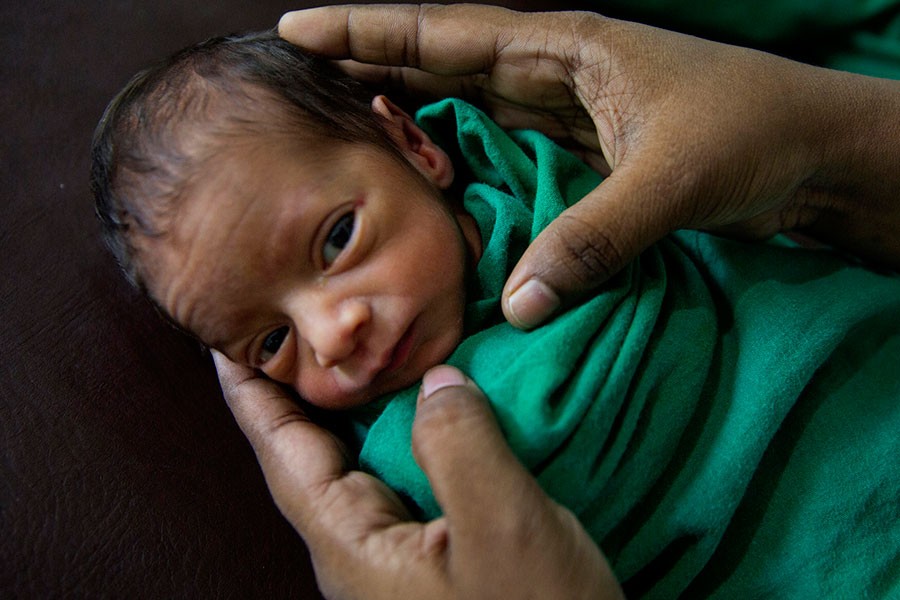'Bangladesh significantly reduces newborn mortality rate'
American media appreciates the achievement amid alarming report of newborn death rate

Published :
Updated :

Amid alarming reports of newborn death rate throughout the world, Bangladesh has significantly managed to reduce its newborn mortality rate.
American media organisation National Public Radio (NPR) has published a report on Sunday over this achievement of Bangladesh citing a recent report of the United Nations International Children's Emergency Fund (UNICEF).
The UNICEF report said, Bangladesh has managed to cut its newborn mortality rate from 64.2 deaths per 1,000 live births in 1990 to 20.1 per 1,000 today.
The UN body said that's 1 in every 50 births. By comparison, in neighbouring Pakistan; which has the worst odds of any country; 1 in every 22 newborns doesn't survive.
In 1990 241,000 newborns did not live through their first month. By 2016 that figure was down to 62,000, according to UNICEF.
Describing current death rate mentioned in the UNICEF report as still unacceptable, the Washington-based media said that Bangladesh is now in the midst of an effort to bring down the newborn death rate further.
It also appreciated the achievement as Bangladesh is one of just a few countries that have made such substantial strides in solving a problem.
Abdul Mannan, Neonatology department chairman of Bangabandhu Sheikh Mujib Medical University (BSMMU), said a key factor behind significant reduction of new born death rate is births were taking place in homes instead of health-care facilities.
"In 1990, about 90 per cent of deliveries were happening in homes, basically just assisted by relatives [of the mother] who had no training," he said.
Even people who lived close by to a facility often eschewed it, said Mannan.
"There were these beliefs that a woman should not expose herself to a male doctor," he said.
Mannan said, but now only about 50 per cent of births in Bangladesh are home deliveries.
UNICEF's senior adviser on maternal and newborn health Nabila Zaka said medical staff often lacked the skills to ease the delivery or to revive a newborn.
"But the government launched a multi-pronged effort from 2010 to solve the problem," Nabila Zaka said.
Bangladesh trained workers at health centres on measures like infection control and resuscitation with the help of donor governments and international organisations.
The government also opened many more facilities for childbirth and just as important tried to convince families to use them.
But one problem is that existing facilities are not open 24-7, Zaka said.
"If there is a delivery at night, the facilities don't have the staffing to handle it," she said.
"UNICEF has been working with the government to ramp up funding to address the problem," she added.
Although the number of newborn deaths due to asphyxia has decreased, Nabila Zaka said, another cause remains as vexing as ever: premature birth, the number one cause of newborn deaths in Bangladesh.
According to her, a major reason for the high rate of premature babies is the persistence of child marriage and early marriage in Bangladesh.
Zaka mentioned Bangladesh government's efforts doing advocacy campaign against child marriage and opening up of intensive care units for newborns.


 For all latest news, follow The Financial Express Google News channel.
For all latest news, follow The Financial Express Google News channel.